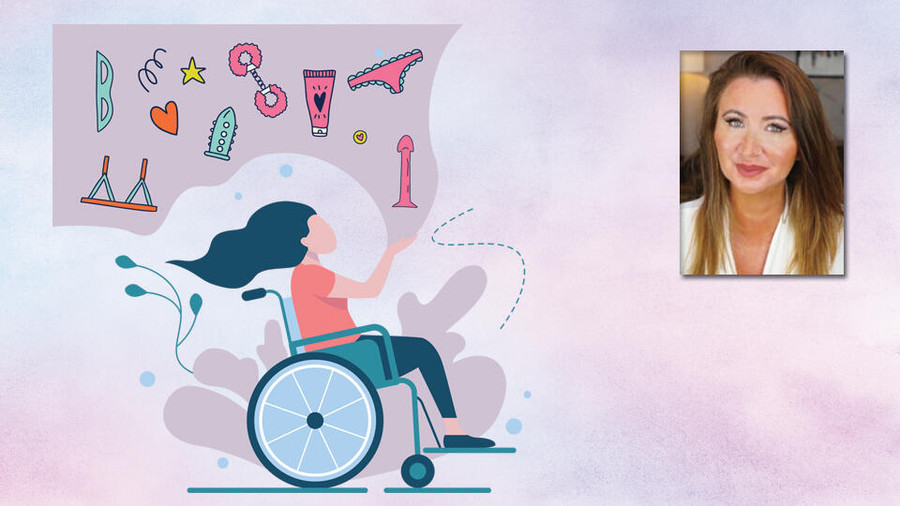Over the past months, my team and I have been writing about disability and business — why it matters, why the time is now, and most crucially, why it can and will benefit your bottom line to be inclusive. We’ve also illustrated what that inclusivity looks like in 2021, and how to implement it in your business in a sustained and impactful way.
But as with any new concept, numbers really speak louder than words, so we’ve teamed up with Purple Goat, a brilliant specialist disability and inclusion marketing agency. We want to make sure that when you’re finished reading this article, you’ll be in absolutely no doubt about the financial benefits the so-called purple pound (the spending power of people with disabilities) will definitely have should you put in the necessary work on your business.
Disabled consumers constitute an enormous consumer group, and yet are the least catered-to consumers overall.
What’s It Worth?
Let’s start with the biggest number — there are 14 million people living with disabilities in the U.K., which is 22 percent of the population. That’s an objectively large number of potential consumers, whichever way you look at it, but let’s look at it comparatively for a moment. Also in the U.K., there are:
- 600,000 vegans
- 2.4 million students
- 9.1 million 18-to-30-year-olds
This statistic is replicated all over the world — in the U.S. and elsewhere. Disabled consumers constitute an enormous consumer group, and yet are the least catered-to consumers overall. Even just going on the numbers, this makes absolutely no sense. Let’s think back to a few years ago when the only vegans you knew were lifestyle outliers, and the few vegetarians you knew struggled in restaurants to find a meal that wasn’t salad. Fast-forward a few years and the vegan food industry is worth billions. The reason? A deliberate, steady increase in awareness of the benefits of catering to this demographic.
Marketing Matters
When you consider that the families of disabled people spend $8 trillion globally, you’d think marketing and advertising agencies would make an effort to market to them either directly or, as with most other minorities, via representation. In fact, a paltry 0.06 percent of advertisements feature disabled people, and that’s all industries, so you can conclude that when it comes to the sex industry, representation is even more invisible. Why?
Disabled consumers want to be marketed to the same as everyone else, and there are many millions of them. They don’t want to see one wheelchair user in a campaign every two years, either — they want to be seen, heard and valued properly as consumers.
That means the same treatment as any other large minority consumer group. It means representation, not tokenism and it means having a voice throughout, not just ticking boxes after non-disabled marketers make all the decisions. It means following through on all of these things we’ve been talking about — inclusivity, representation and accessible versions of bestselling products — by paying consultants and thoroughly researching, not just agreeing enthusiastically to the idea with words and no actions.
What’s Stopping Us?
Disability has always been an uncomfortable subject for the non-disabled, because the truth that nobody wants to face is that anyone can become disabled at any time, and there’s absolutely no getting away from that — which means, as humans, we’re tempted to just ignore the entire sector out of fear.
As a result of plain human fear and the subsequent head-in-the-sand mentality, the disability sector — especially in the sex toy industry — has been woefully slow to develop. Disabled consumers have been segregated for so long, they are almost a completely unknown quantity to mainstream brands. It can be intimidating to enter this new arena, and the fear of doing it wrong can hold businesses back.
But as we’ve discussed in previous articles, there’s a very easy fix: hire the experts. Hire disabled people to advise, consult and innovate. Ask the people what they want, get community input and sign-off, and test the creative regularly, just as you would with any other sector.
‘Nothing About Us Without Us’
So, how do you, a brand in the sex industry, get started on the journey of financially driven inclusivity? Read our XBIZ articles, hire the best disability consultants and agencies you can find, and always follow their step-by-step guide:
- Engage with the community
- Listen to what they want
- Strategize how to give it to them and drive ROI
- Recruit the right professionals, talent and influencers
- Test the creative and strategy with the audience
- Execute the tested strategy seamlessly and at scale
- Track performance, sentiment and measure success
- Optimize creative and strategy with insights and learning
- Repeat the process — no one-off campaigns
All of which can be boiled down to a quote by the brilliant Martyn Sibley, CEO of Purple Goat Agency, who says, ”Nothing about us without us.”
Julia Margo is the co-founder and COO of revolutionary sex toy company Hot Octopuss, which in 2013 created the world’s first “Guybrator.”








